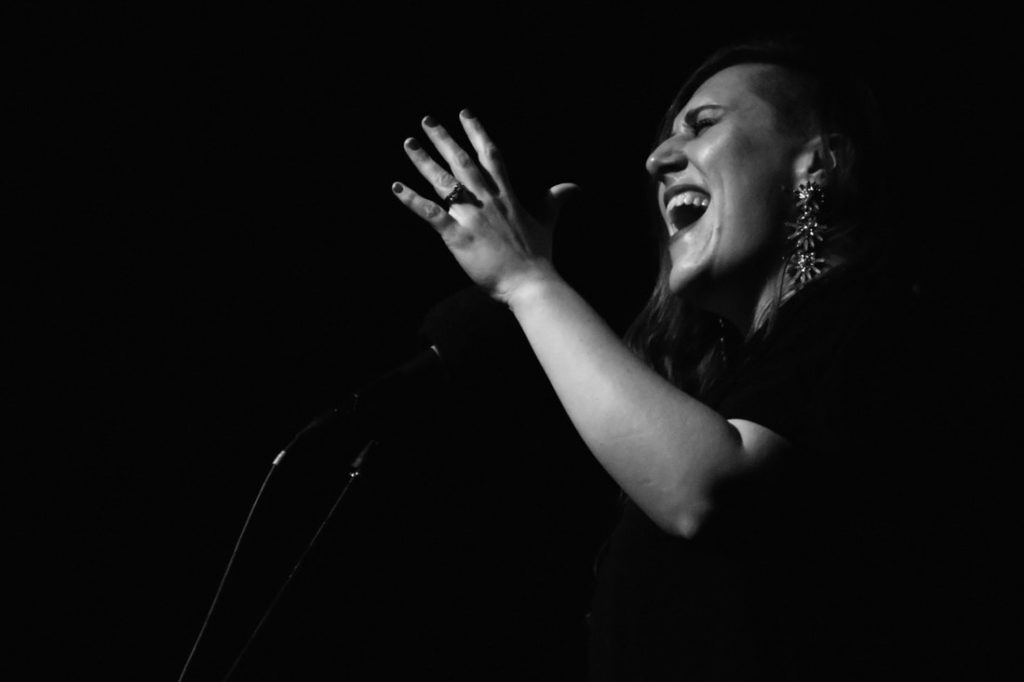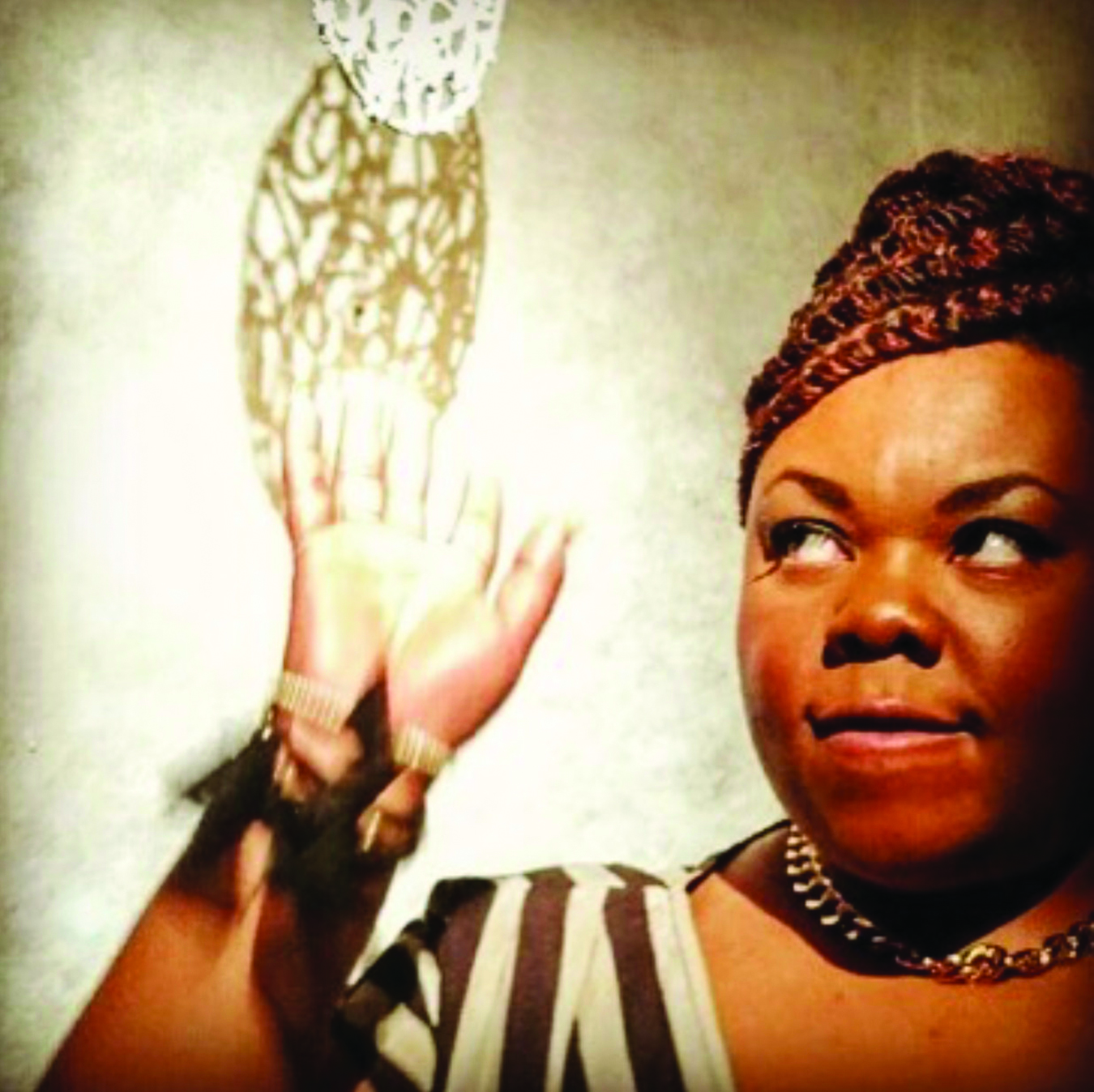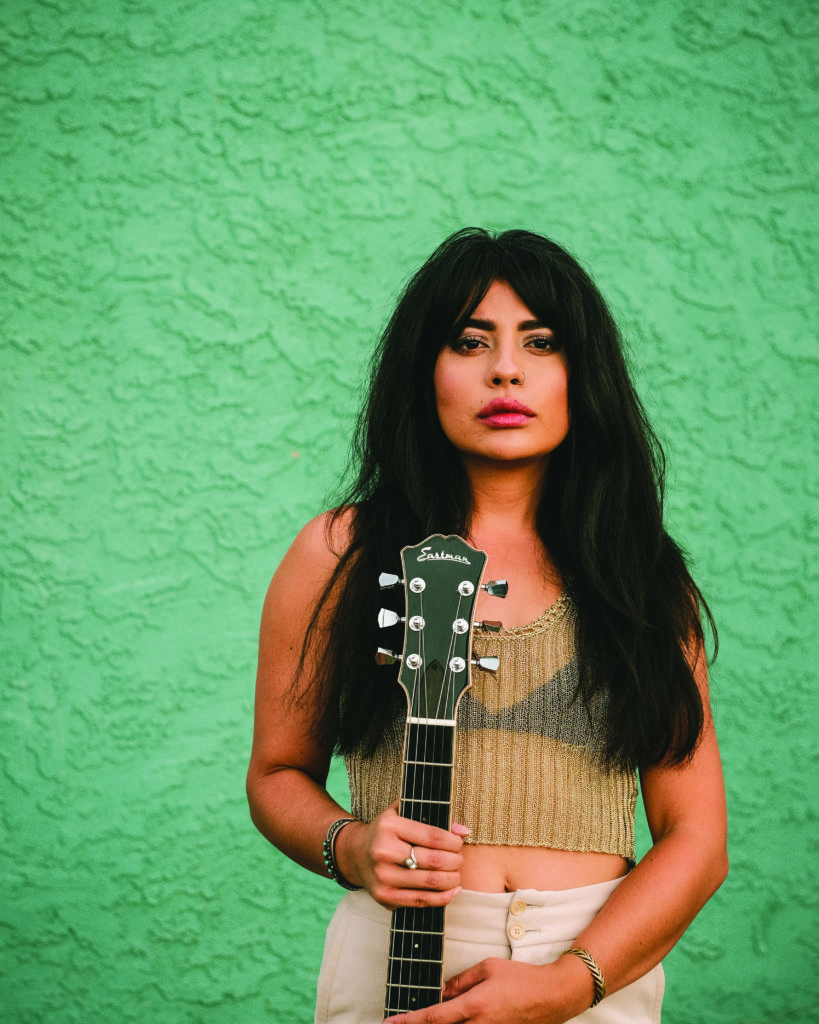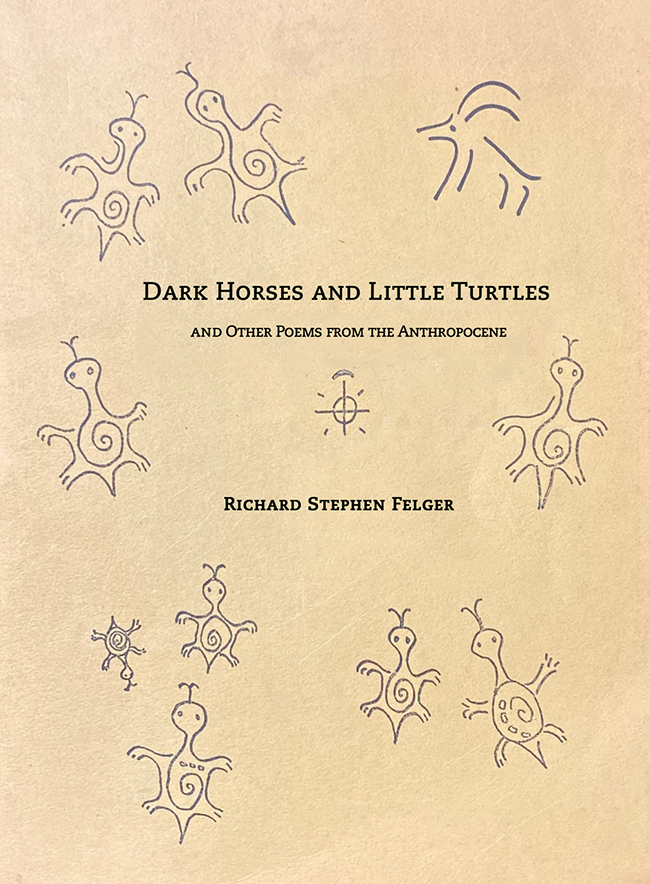Powerhouse Women Reflect on Tucson’s Evolving Music Scene
It is great, and there’s still more work to do.
“We can miss the ladies. Why do we miss the ladies? Because it has taken a really long time for women to get to the forefront of the music scene.”
Cathy Rivers, general manager of KXCI and a singer/songwriter/guitarist, reflects on a comment I just made about sending out interview questions to over 40 professionally established and talented women for this article, and I was still coming up with names of musicians I missed while we were chatting.
Rivers and I are sitting in her backyard, reviewing the Tucson music scene through the lens of local women artists over the last 30 years. The number of women performing has increased significantly from the 1990s to now.
As Maggie Golston, a singer/songwriter/guitarist and writing and humanities faculty at Pima Community College, shares: “Women songwriters and performers have positively dominated the scene of late, whereas in the ’80s and ’90s, having women and LGBTQ members made a band an exception, or worse, a novelty.”
Keyboardist/guitarist Uma deSilva, who plays with bands Max Parallax, Smallvox, and The Sapiens, notes that “there has been a strong wave of women coming into their own as musical powerhouses in the last decade. When I first joined the music scene in 2006, there weren’t many females making the kind of music I was trying to make. Any opportunity where female-led bands were playing, my band would get a call to join, but not necessarily because we fit the genre of the night’s show. I’ve performed in a few shows as a ‘token lady,’ but that doesn’t undermine the musicianship.”

“In the ’90s and 2000s, there were very few local female-fronted bands,” singer/songwriter LeeAnne Savage explains, “and in turn many of us felt we were constantly fighting an uphill battle to be recognized and taken seriously. Women today are still fighting to be heard, however there is power in numbers and there are a lot of talented, energetic, fearless female artists that are making their mark in Tucson’s musical landscape! I am thrilled to see so many more women fronting and/or leading bands nowadays.”
Traction has been made insofar as balancing the gender scales on stage, though there’s still a lot of ground to cover to make things more equitable – gender wise and for women of color. Overwhelmingly, the musicians I contacted to contribute to this article – more than space allows – shared how supportive and talent-rich Tucson is, with a lot of opportunities for cross-pollination and craft development. However, there are still many issues that specifically vex women artists; there are glaring blind spots in a culture struggling with unconscious biases.
One bias in particular: “It is still a noteworthy aspect to be a female artist, and I do not think that should be the case,” shares vocalist Katherine Byrnes – a native Tucsonan who has been performing for the last 20 years. “We never say ‘the all male band’ or the ‘male artist,’ and it should be the same no matter what gender identity the artist has.”
Diane Van Deurzen and Lisa Otey, of The Desert Divas, agree. “Women artists don’t see themselves as ‘women artists’ until they look at a festival lineup or music calendar at local clubs and see only one woman on the bill. Fortunately, in Tucson, women artists don’t seem to feel held back by the oversight of these venues. As women, we have to make it happen for ourselves. You still see the token female act on many festival stages, not just in Tucson. We have to create our own opportunities. Our Desert Divas and Sabra Faulk’s Angel Band are examples of groups organized by local women who want to showcase other female musicians.”
“If you’re a musician and you’re building a bill, take a second look at the artists at the top,” advises Jillian Bessett of Jillian and the Giants. “Do you have women/femme people on the bill? Do you have people of color on the bill? If you don’t, think about whether it’s an anomaly or not. When was the last time you shared a bill with a woman or a person of color? If it’s been a while, ask yourself the difficult questions about your unconscious biases.”

Another bias that several musicians talk about surrounds sound.
“Stop with the assumptions about us,” asks vocalist Olivia Reardon. “Because I’m a woman doesn’t mean I don’t know how to turn on, set up and tear down the PA, or how to adjust the sound… because I can. As well as sing the hell out of a Zeppelin song.”
“The mansplaining. Oy,” groans Abby Corcoran of Moontrax and PIPELiGHTS. “This is rarely an issue for us in Tucson, however we encounter this often when we travel. We use a lot of electronic gear and it is wildly frustrating to have someone ‘teach’ us about a process with which they are unfamiliar. I know this sort of thing happens to female artists quite often. I wish our fellow male musicians would realize we are capable of plugging things in and pushing buttons as well.”
Violinist Samantha Bounkeua adds, “In live performance, it is far too often we are put in a position of being afraid to voice our concerns for fear that we would not be taken seriously or that the engineer we’re working with might passive aggressively sabotage the mix. This is why so many of have come to rely on and request very specific individuals who we know and trust, but those numbers are so few.”
“It’s always difficult to advocate for yourself, and especially when you’ve got that artistic vulnerable side, it’s even harder,” reflects Cathy Rivers. “I think that we need practice using our voices, and there are spaces for women to start having these conversations and together we should create more spaces to make this happen.”
It is also imperative that venues consider safety. Drummer Maggie Rickard of The Surfbroads and Sugar Stains explains that “women artists are frequently left vulnerable to fans that do not respect their personal or physical boundaries, especially after a performance. I appreciate any venue that offers some form of support to buffer these situations and step in to protect the artists when it is necessary.” Jillian Bessett offers that “a real practical solution would be security at clubs. If a club had a policy of having a staff member walking artists to their car if they’re alone, that would be such a comforting, proactive gesture.”
The beauty of the scene continues to be the cooperation and guidance musicians provide one another, through networks and groups – such as the Music Biz and Shoptalk Facebook group started by Jillian Bassett.

“I think this is a good time to be an independent female artist in Tucson,” shares vocalist and songwriter Najima Rainey of Just Najima, pictured above. “There is a community of supportive and experienced women who often support and boost other women in the scene. I literally would not have been able to record my CD if it hadn’t been for the kindness and encouragement of folx like Jillian Bessett, Miranda Schubert, Olivia Reardon, and other musicians who gave me advice and guidance the whole way through!”
Singer/songwriter/guitarist Gabi Montoya, who performs with Juju Fontaine, Taco Sauce and Gat Moony, says, “There’s a real sense of community, everyone makes an effort to reach out to up-and-comers and give others opportunities to get great gigs. There are growing communities of woman/non-binary, queer and Black musicians creating spaces and opportunities for each other, so the local scene is gradually becoming less of a boys’ club. Black Renaissance is an amazing new organization featuring Black musicians and creators around Tucson. Everyone should definitely follow them, because it feels like Black artists haven’t been given the same platforms in the Tucson scene, but this collective has made it impossible for us to ignore these incredibly talented artists anymore.”

It is vital to mention that so many men in the music scene do considerately and robustly embrace and uplift women musicians, and it is crucial that men remember that they need to continuously be allies.
KXCI’s Hannah Levin, host of The Home Stretch and director of content, states that “we need more male allies actively involved, visibly supporting female-identified artists. Share their work on social media, create space for them on bills and within live programming in general, and perhaps most importantly, recognize the privilege you have and the space you take up, literally and figuratively. This isn’t ‘women’s work,’ this is Tucson’s collective obligation if we want to be a truly inclusive creative community.”
Resources
To get involved with the Music Biz and Shoptalk Facebook group, email Jillian Bessett at jillianbessettmusic@gmail.com. LeeAnne Savage plans to start a consistent women-led showcase in 2020. Contact her at SavageMusicGirl@gmail.com or 520-471-5450.
Category: The Scoop




